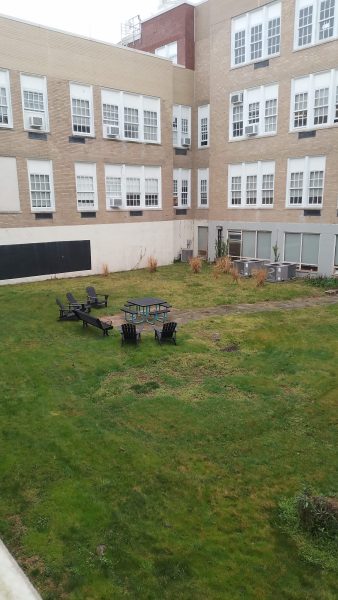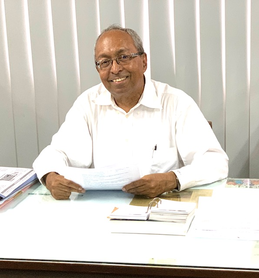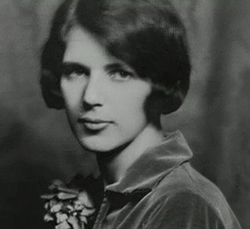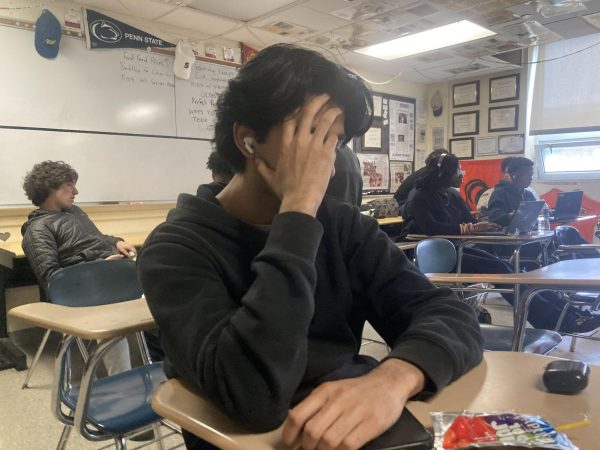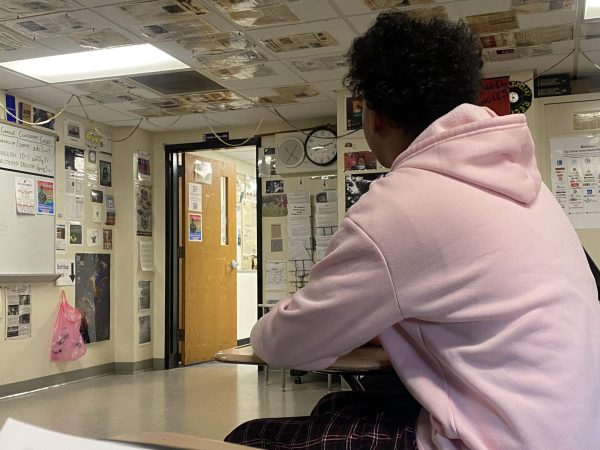An Interview with the Champ
April 16, 2015
Every year, at the end of March, the Connecticut Debate Association (CDA) holds the CT Debate Championships at Wilton High School. This year was special, as one of Stamford High School’s own students, senior Sam Aldershof, received first place at the tournament. Aldershof has partaken in debate all four years of high school, has three older siblings, all of whom also did debate in high school, and plans on attending Wake Forest University for debate. The Round Table was lucky enough to get an interview with this seasoned debater, and the following are some of the excerpts from our conversation. As a forewarning, I didn’t ask questions about how debate works, as that is something anyone can learn on their own time. Rather, I focused on Aldershof’s perspective on the many facets of debate.
TRT: So what’s your style of debate?
Aldershof: I try to be a jack of all trades, but I found that naturally I’m very good with a crowd. I’m very good at getting people to react in the way I’d like them to, and I do that with humor, but also with rhetoric. You have to be cognizant that at the end of the day you win debates by making the most logical arguments and being the most reasonable.
TRT: You’re very well-spoken and have a well-developed vocabulary, do you read a lot?
Aldershof: I read a lot of Wikipedia and a lot of news. I keep up-to-date with current events and with different topics, because that’s what’s going to enhance your wealth of knowledge that you can draw from and [that is] the information that is applicable to debate. It’s not so much reading novels; I’ll go on Wikipedia and read about utilitarianism or Iran. Human rights come up a lot. In debate, you have to synthesize a disparate set of information, because you have to both utilize information that’s as clear as day and understand abstract concepts. Often times understanding these will be to your benefit.
TRT: Do you watch debates on television? Whether they be presidential debates or just debates on CNN?
Aldershof: Well, if you look at a presidential debate, for example, they speak very well, they speak at a pace that is accessible, and they’re very good at maintaining clarity – and that’s very important in debate. But what you might not see on a political debate is an actual clash; you might see people dodging questions and not getting at the issues. So politicians, for example, are very good at the surface level, at stuff like their presentation being persuasive, but they’re not always very good at getting to the heart of the matter. So there are really pros and cons to watching debates on TV.
TRT: Oftentimes in competitive sports there will be a sense of hostility between opposing teams or players. Does that happen in debate?
Aldershof: I find debate to be very social. There are people from all over the state with whom I’m great friends with, and so I don’t really have this heated competition because I’m familiar with everyone at the competitions. And while others may get overly competitive, me, I know I’m going to win, so no one really scares me or intimidates me. But I try to get to know everyone at the debates, I’m pretty popular.
TRT: So what are some dirty tricks of debate? The sort of tactics that are equivocal to a cheap shot.
Aldershof: Debaters can do what is called “straw-manning,” which is where you misrepresent your opponents argument to make it easier to clash with. And what I do when that happens to me is I just clarify that [my opponent] has misrepresented my arguments and I call them out on it. So at that point, nothing [my opponent] really said is relevant at this debate and I usually win on that basis.
TRT: How has debate influenced your life? How did it affect your future plans?
Aldershof: I look at a lot of things in life as if they were a round of debate. [Debate] influences how I communicate with people, how I write, say things, and do things. People often tell me “Oh you’re very good at debate, why don’t you become a lawyer?” And to me, that’s like looking at a biologist and saying “Well, you’re very good at biology, why don’t you develop anthrax,” because I just think it’s the worst possible use of the talent. But a politician, it’s setting my sights very high, but if I could go into politics, I certainly would. You don’t start there, but maybe I could arrive there at some point.
TRT: So before we wrap things up, do you have any closing remarks or shout-outs?
Aldershof: Well, Mr. White has been a great coach ever since I transferred into Stamford High. It’s been a great ride and I look forward to collegiate debate.







